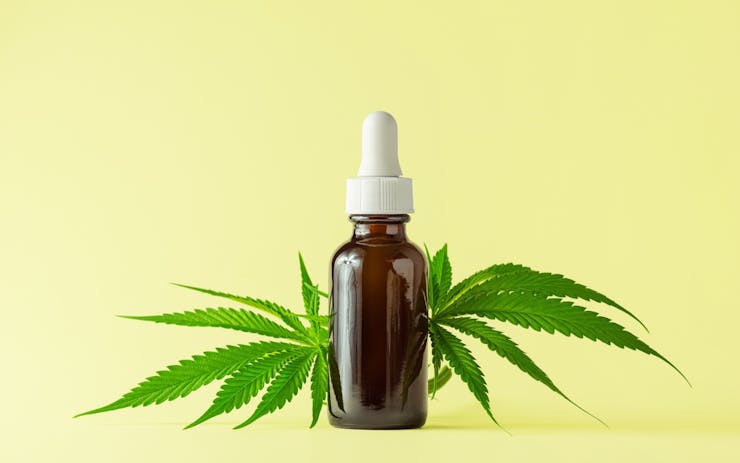The new year is unofficially the best time for setting goals and intentions for the year to come. That could mean hitting the gym more often, eating less sugar or quitting smoking. It could also be a starting point for considering healthier cannabis consumption habits. Here are a few things to consider:
Avoid combustion
While smoking cannabis is the fastest way to feel its physical effects, it’s also the most hazardous to your health. That’s because it directly harms your lungs.
M-J Milloy is the University of British Columnbia’s first Canopy Growth professor of cannabis science (an “arms’ length” position funded by the eponymous licensed producer). He says that when it comes to the negative impact of cannabis, there are still a lot of questions that need to be researched. But one thing is for certain: smoking anything, whether it’s tobacco, hookah or cannabis, isn’t healthy.
Inhaling burning plant matter is never a good idea, whether that’s from the cannabis plant or tobacco plant.
“Inhaling burning plant matter is never a good idea, whether that’s from the cannabis plant or tobacco plant,” he says. The risks of smoking cannabis are thought to be less than the risks of smoking tobacco, since cigarettes contain other chemicals. However, Canada’s Lower Risk Guidelines (CLRG), which were created by several health organizations and focus on non-medical cannabis use, recommend using other ways to consume, like vaping, oils or edibles. While these methods aren’t risk-free, they don’t damage the lungs.
If you do choose to smoke cannabis, the guidelines recommend that you avoid inhaling deeply and holding smoke in your lungs too long. Doing this increases the amount of toxins absorbed into the lungs and body, and can lead to problems.
Consider mental health
Another recommendation from the CLRG is for anyone with personal or family history of psychosis and/or substance abuse to avoid cannabis altogether.
Andra Smith, a professor at the University of Ottawa at School of Psychology, says that dosage, potency and ratio of CBD to THC are important things to consider if there’s a history of mental health issues. The high potency cannabis that’s available on the market can have significant impact.
If you’re predisposed to any sort of mental health illness, THC is really important to pay attention to. The lower is better.
“With higher potency THC, you run more of a risk for anxiety and psychosis,” she says. “If you’re predisposed to any sort of mental health illness, THC is really important to pay attention to. The lower is better.”
Milloy says chronic cannabis use that’s not intended to help with a medical condition is usually linked to greater harms, like dependence. Cannabis use disorder syndrome, a clinical term used to describe detrimental cannabis use, can be characterized by several factors, including: using more cannabis to get the same effect (and in turn developing a substantial tolerance); using cannabis even if said use is harming your family, work or social life; being unable to cut down or eliminate cannabis use, even if you wish to do so.
Thankfully, this type of disorder doesn’t have as many physical consequences as other dependencies can. “There’s not much physical dependence and the withdrawal won’t be as severe as someone trying to give up opioids,’ Milloy says.
Nevertheless, if your cannabis use is interfering negatively with other aspects of your life, it might be time to seek help from a mental health professional.
Consider alternative therapies
Alternative therapies, like acupuncture and hypnotherapy, can be useful to some who want to address problematic cannabis habits. There is no scientific evidence to prove these treatments work when targeting cannabis habits specifically, but some people find them helpful.
Darcy Carroll from Poke Community Acupuncture in Vancouver explains that acupuncture can be used effectively to target addiction issues overall. At her clinic, they use a protocol that can help take away about 70% of the cravings, she says, while the patient is responsible for the rest of the work.
“Getting frequent treatment really helps at the start,” she says. “If someone is going through some sort of withdrawal, we really want to help until those symptoms go away. There’s so many different reasons for addiction, we try to meet each client where they’re at.”
Jason Palter, a certified hypnotist at the Greater Toronto Hypnosis Centre, says his work isn’t about getting people to quit a habit, it’s about addressing what’s triggering them to do it in the first place. Things like stress, a toxic family member or life circumstances can lead people to indulge in unhealthy habits, and that can include cannabis.
While Palter hasn’t treated anyone specifically for cannabis use, he says one client who came to him about erectile dysfunctions also mentioned he was a heavy weed smoker. After their sessions together, the client said he had given up cannabis since he enjoyed the high he experienced from the hypnosis better.
“Results vary, every client is different and hypnosis isn’t the cure all and catch all for everyone,” Palter says. “But we work to change the behaviour, change the pattern and replace it with something else that’s more desirable.”





